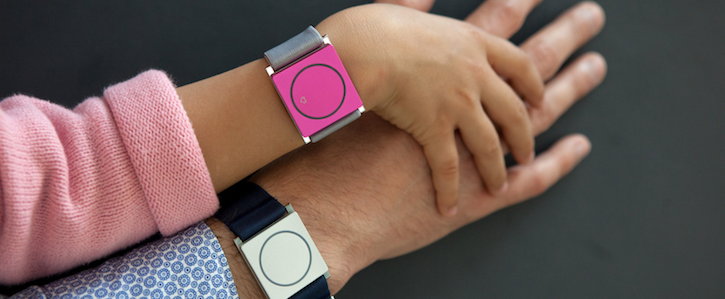FDA Green-Lights Smartwatch Whose AI Monitors Seizures
Advanced machine learning enables the wearable device to spot events and summon help.

In the near future, it might be common to see patients with epilepsy sporting the Embrace smartwatch, a wearable device that uses advanced machine learning to watch for seizures. The FDA approved the technology this week, further bolstering the regulator’s commitment to digital health and opening the product to the US market.
The Embrace scans for the “most dangerous kinds of seizures,” meaning grand mal and generalized tonic-clonic seizures, and sends alerts to caregivers when appropriate, according to an announcement from Empatica, the company that makes the device. In a clinical study, the algorithm powering the smartwatch detected every single seizure, or 40 total, over 272 days.
“The FDA approval of the Embrace device to detect major convulsive seizures represents a major milestone in the care of epilepsy patient,” said Orrin Devinksy, MD, who heads the Comprehensive Epilepsy Center at New York University. “Tragically, more than 3000 Americans die each year from sudden unexpected death in epilepsy, and the Embrace offers the potential to alarm family members and caretakers that a tonic-clonic seizure is occurring.”
Ultimately, Devinsky noted, evidence suggests that “prompt attention” to these convulsive seizures can save lives. The Embrace aims to foster that goal, improving responses and patient outcomes.
Empatica’s multicenter clinical trial of the smartwatch included 135 patients with epilepsy, who were monitored via video for 272 days, yielding 6500 hours of data. Independent epileptologists confirmed the 40 seizures that occurred during that period, and they didn’t have access to the smartwatch data.
Electrodermal activity signals enable the Embrace to gauge sympathetic nervous system activity, making the sensor something of a substitute for a biomarker and a clear alternative for a wearable electroencephalography device.
The manufacturer also touted the look and feel of the product, which has been available to patients in Europe for some time.
“Medical devices face a huge problem: They’re usually too bulky and uncomfortable, and people simply don’t want to wear them. Empatica took a different path,” Matteo Lai, MSc, CEO and co-founder of the company, said. “We wanted to design the world’s first medical device that could win a design award while being used as a lifesaving product.”
The recent FDA approval is in line with the agency’s ever-growing digital focus. The regulator has pledged a commitment to digital health and has subsequently backed it up with recent approvals for innovations like a wristband EKG reader for the Apple Watch, a smartphone-ready insertable cardiac monitor, and a “digital pill,” among others.
Podcast: Adoption of Healthcare Tech in the Age of COVID-19 with Dr Kaveh Safavi
June 22nd 2021Kaveh Safavi, MD, JD, global health lead of Accenture Health, discusses how the pandemic influenced the speed at which healthcare organizations adopted new technologies and how this adoption is impacting patient care.